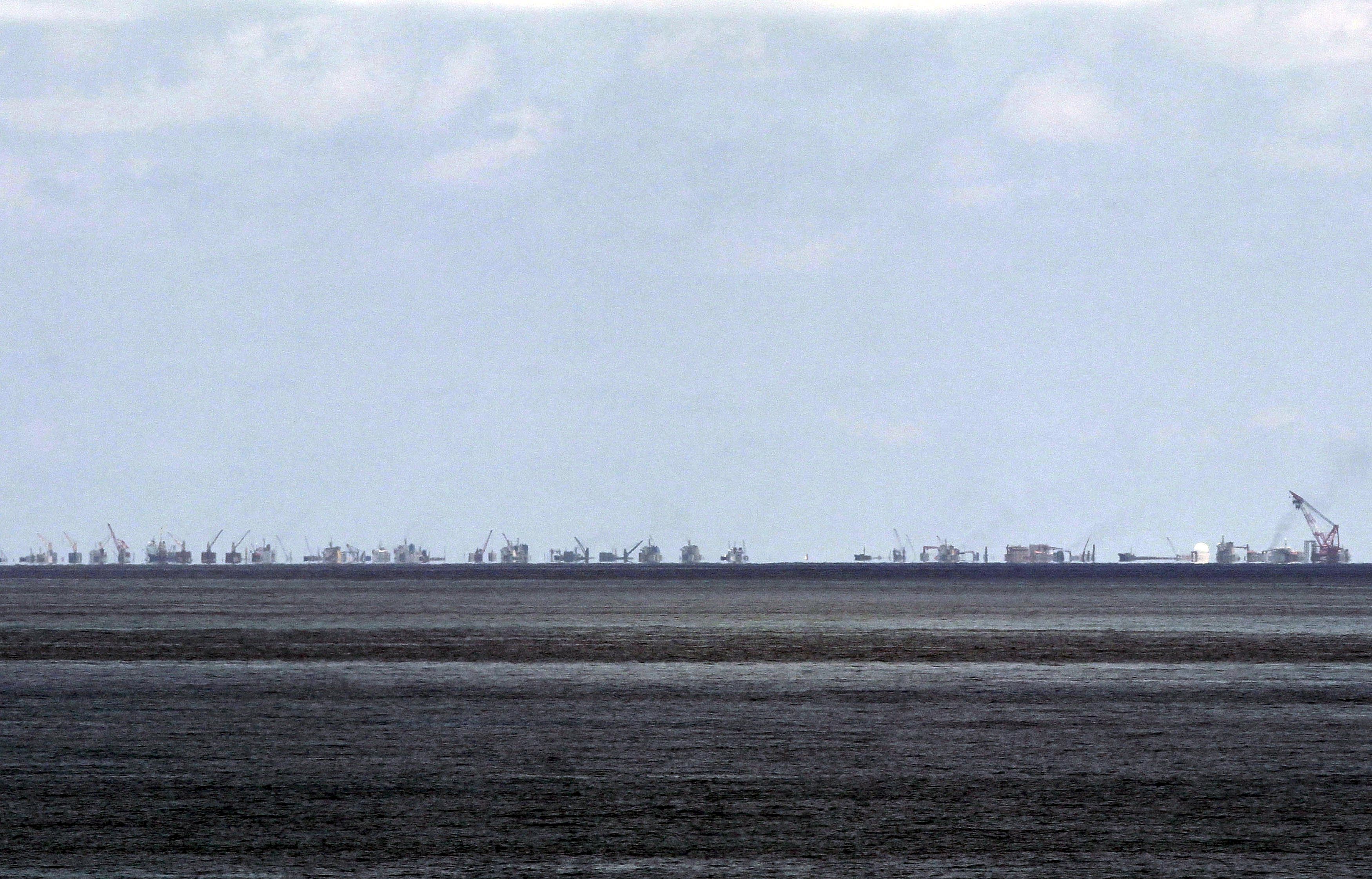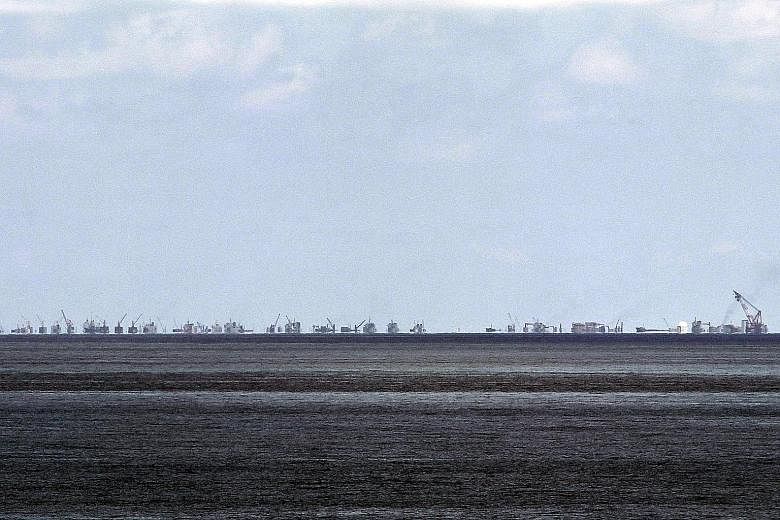In any major contest - whether of ideological, military or economic focus - there will always be arenas where that contest is most fiercely fought. Usually these are the constants across which the geographical and political limits of those nations involved intertwine.
In the Great War it was upon the meadows of Flanders that provided such an arena. During the Cold War, Eastern Europe earned that particular distinction. In the comparatively peaceful yet equally fierce contest that currently exists between China and the US, it is South-east Asia that has earned this accolade.
An unexpected strategic convergence has settled in between China and the US in the region. Although engaged in a war for hearts and minds within the very same arena, the two seem to be avoiding direct competition by pursuing different outcomes. On the one hand, China's "One Belt One Road" initiative, for instance, is focused on physical infrastructure; improving road, rail and air networks overland between neighbouring states as a means to oil the cogs of commerce and bring new customers into China's fold. On the other hand, the US-led Trans Pacific Partnership (TPP) maintains a discourse of freer trade in the Pacific region, opening up new markets overseas by relaxing tariffs and increasing various standards relating to the process of manufacture.
However, regional attitudes are changing, largely as a result of the bullish stance China has taken in recent years over territorial disputes. The nations of South-east Asia are increasingly reluctant to accept any threats to their sovereignty in the form of Beijing's repeated incursions into their exclusive economic zones.
In the latter stages of a case that has been continuing for around two years now, the Philippines has received recognition from the Permanent Court of Arbitration in the Hague. The court declared that the case falls under its jurisdiction and will hear Manila's arguments against China's claims in the South China Sea, jointly referred to as the nine-dash line.

Legal experts are confident the Philippines could win the case, as the court largely rejected China's arguments in the preliminary hearings. Indonesia, South-east Asia's normally reserved giant, is currently set to follow suit, recently indicating that it would seek legal reparation for China's disputed claims over the Natuna Archipelago.
In the case of Vietnam, criticism has typically been far less reserved or legally inclined, with a blunt barrage of ire coming from politicians and the public alike. Even in landlocked Laos, a nation strategically inclined to bow its head to its powerful neighbour in the north, there is growing anger among the majority of its grassroots populace regarding Chinese land-grabbing around routes 2 and 3 of the Asia Highway.
Make no bones about it: China is fast losing support in South-east Asia. In this environment of mistrust that China has fostered, even nations once entirely opposed to all things Western, are engaging in a hedging strategy that involves overcoming traditional aversions to the US and hitching their wagons to Washington. And perhaps most startling of all these is to be found in the case of Malaysia.
Malaysia has cemented itself as one of the key US partners in the ongoing war on the Islamic State in Iraq and Syria (ISIS). Prime Minister Najib Razak has been pushing Asean countries towards fighting against extremist interpretations of Islam and signed a new terrorism prevention agreement with the US to share intelligence on suspected terrorists. It has also joined the US-led coalition against ISIS, prompting US President Barack Obama to remark: "Malaysia is part of the coalition to fight (ISIS) and can be extraordinarily helpful on issues like countering the destructive and perverse narrative that's developed."
If, from a Western perspective such commitments are to be expected, this is in fact a very difficult position for a majority- Muslim country to adopt. Pushing South-east Asia towards the TPP by the scruff of its neck, Datuk Seri Najib's Malaysia has also successfully chaired the recent implementation of the US-Asean Strategic Partnership. A matter of fine-tuning, with politics as mercurial as they often are, the uncompromising stance of Beijing on territorial disputes has obviously so angered the Asean members that they are willing to throw their hat in with the US. Make no mistake about it: Malaysia is sending out a very clear signal to the world about its intended future in the global scheme of things, and this is a future that involves freedom from terror and a rather pronounced snub of the nose to its traditional ally, China.
Faced with these developments, China's reaction has been to court the attentions of nations which are more or less being shunned by the West. In South-east Asia, in a highly unexpected turn of events, this particular role is being played by the US' formerly most reliable ally in the region, Thailand. In the grip of a military junta since last year, the former Land of Smiles is slowly being turned into some southern version of a North Korea. Laws have been imposed allowing the junta to arrest voices of opposition with impunity or to send them to military camps for "attitude adjustment" sessions. The previous, democratically elected leader of the nation, Ms Yingluck Shinawatra, has so far been denied any travel abroad which would allow her to put her case before any "higher" authorities, such as the recent invitation to speak before the European Parliament. Such an oppressive environment makes prime breeding ground for Chinese foreign policy; junta leader Prayut Chan-o-cha didn't shirk from capturing and returning political refugees bound for Canada to Chinese borders. On the economic side, China recently extended a much-needed lifeline to the Thai economy by agreeing to buy rubber and rice, as well as investing in a planned 900km railway line.
Increasingly powerful and yet increasingly isolated, China is stuck in a Confucianist time warp, enmeshed in the traditional myth of its own domestic infallibility, while its main contender in the region has no qualms about pursuing as many alliances as it can - as reflected in the US-Asean Strategic Partnership. There are voices calling for an overhaul of traditional Chinese policy and developing a strategy that allows for genuine alliances as opposed to strategic partnerships, but these are few and far between and rather tardy in their evolution.
As such, it is puzzling then that whenever China sails a hastily armed fishing boat out towards the limits of its own territorial waters, the media reacts with incessant doom-mongering and badly compiled half-truths relating to China's impending military eclipse of its equivalent in the US. With China increasingly fenced in by the US and Beijing ideologically constrained from reacting to the threat which that presents, this fundamental self-imposed limitation would, conversely, seem to place the ball squarely in Washington's court.
•The writer is a London-based researcher currently working on Asean dynamics.

